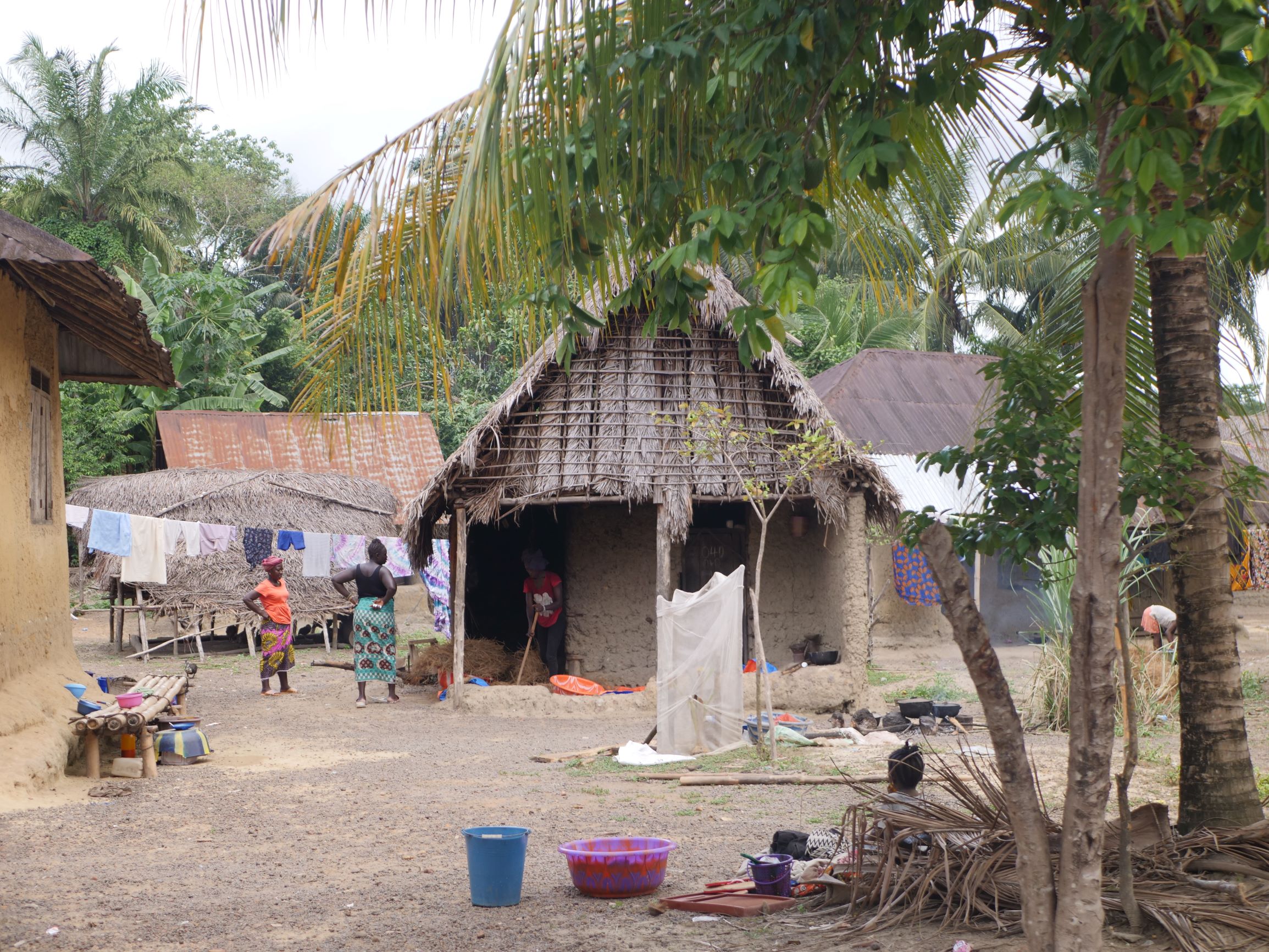Like many people with busy and fulfilling jobs I viewed my approaching retirement with mixed feelings.
Yes, I was ready to lay down my prescription pad after 40 years but was I ready to give up the buzz of feeling that what I did each day mattered, and made a difference, however small, in the world?
My journey to make sense of my retirement led me to Rory’s Well, a charity based in the Cotswolds and working in Sierra Leone. As HR Director are very generously featuring us for the next 6 months I’d like to take you with me on this journey and introduce the charity which has replaced medicine as the driving passion which gets me up each morning.
Rory’s Well was born out of tragedy. Like many in our small community, I was horrified when the founders Karen and Tony, lost their young son Rory, in an RTA, and watched with admiration as they threw their energy and money into digging boreholes and supporting farmers in this distant country. Sierra Leone was somewhere I knew only from reports of civil war and the Ebola epidemic. I discovered that this small, West African country is one of the poorest in the world, ranking 181 out of 195 countries on the UN Human Development index, with most people living by subsistence farming
My husband and I met Karen and Tony to discuss what we could do, and found ourselves drawn into discussions of how to support small communities on the edge of the Gola Rainforest. Already clean water was reducing child death in the areas served by boreholes and the next problems the charity sought to address were malnutrition and lack of livelihoods.
Neil offered to teach bee-keeping and I became involved in helping women to set up community farms to grow high protein crops such as groundnuts and beans.
This was the time when XR burst upon the scene and the country seemed to wake up to the urgency of the Climate Crisis facing us all.
Deforestation in Africa is now progressing faster than anywhere else in the world and much of this is driven by ‘Slash & Burn’ land clearance. Land is cleared and burned, providing short term nutrients for crop growth. Within two to three years the land’s fertility is exhausted and the farmer is forced to clear more land. Increasing populations mean that the land has no time to recover and a spiral of decreasing fertility and poor crops is leading to widespread deforestation across the continent.
We started to teach two regenerative farming techniques which can help to reverse this cycle.
Swamp rice farming used to be widespread in Sierra Leone before the Civil War but requires a community to work the swamp together digging channels and sluices and planting and harvesting communally.
With the help of an agricultural expert, supportive village chiefs and a few older people who remembered the techniques we have been able to support communities to rediscover these skills and, most importantly, to work together again.
Whilst the paddy fields do need to be rotated, streams flowing into the swamp help restore fertility and the cycle is more like five years as opposed to two for upland rice.
Agroforestry is becoming recognized as an important regenerative farming technique, both in the UK and abroad. Crops are grown in association with trees which reduce soil erosion, provide shade and increase fertility in a number of ways. Leaf litter, bacterial and mycorrhizal connections add nutrients and Inga Alley Cropping (more details in later article) has been shown to enable crops to be grown on the same site, with the soil increasing in fertility, for up to twelve years.
These areas of Clean Water, Regenerative Farming and Forest Friendly Livelihoods, including Bee-keeping, remain the core activities of Rory’s Well. With a brief which includes Women’s farms, Microfinance, Regenerative Farming and Monitoring and Evaluation, I now have plenty of reasons to get up in the morning.
I certainly did not imagine eight years ago that I would be chatting with Kew Gardens about agroforestry, discussing soil chemistry with Reading University and exploring gender equality initiatives with Bristol University. I can even discuss the pros and cons of new rice strains -as long as no one asks difficult questions!
Our most recent challenge is an outbreak of cholera in a remote village whose inhabitants have hand built a road and footbridge to improve access and enable help to reach them.
Over the next few months we aim to introduce you to some of the people we work with in Sierra Leone. These include the amazing ‘Bee-farmers on Crutches ‘, amputees who have embraced bee keeping, and village women who talk frankly about the difference earning a little money of their own has made to their lives. We’ll also look at the cultural and logistical challenges of working in an environment so different from that we are used to in the UK
This work is important, not only to the subsistence farmers themselves, but to all of us on our warming planet.
Developing ways to increase soil fertility and reduce deforestation in Africa are at the front line of combating Climate Change and supporting those already suffering it’s effects.
If my story resonates with you and, like me, you need to focus on positive action to counter the pervasive anxiety we all feel about the future of our world, there are many things which you could do:
Fundraising www.roryswell.org/donate.html
Partnerships– could your organisation support this work in some way?
Personal Connections– get in touch via our website www.roryswell.org , attend some of our events, spread the word…
There’s no need to wait until retirement ……







